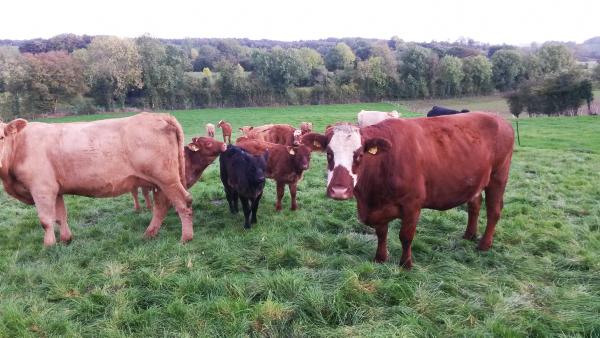Census figures from 2013 highlight that there are only 5,000 farms in NI that are farming grass and crop areas of more than 50ha. In the same publication, nearly 90% of farms in NI are classed as either small or very small.
Perhaps then, Tony O’Neill, chair of the Agri-Food Strategy Board, is right when he talks about NI requiring just 3,000 to 5,000 specialist beef producers. The rest, he suggests, should concentrate on looking after the environment.
His vision is for some form of integrated model within the beef industry – not a surprise given his background coming from the poultry industry. The model is designed to utilise beef from the dairy herd. Despite current pressure on milk price, dairy-bred calves are a reasonably secure source of supply. The challenge is to turn them into something that can deliver a margin for calf rearers, finishers and processors alike.
On the production side, the system will only work in the long term if there is some sort of guaranteed end price. There is an opportunity in NI, particularly given the prevalence of autumn-calving dairy herds.
A Holstein bull, born in September/October and weaned by Christmas, can go to grass in the spring, is then housed early autumn and finished over 100 days. Other systems are less attractive.
Ideally, a calf unit would be separate from other livestock to minimise disease risks. If the system helps 3,000 to 5,000 beef farmers generate a sustainable income, then it should be welcomed.
But do not discount our smaller farms often working with suckler bred cattle. Many have other incomes, and for the hours they work on their beef enterprise, are highly efficient at what they do. Collectively, they will remain an important source of cattle – there are only so many calves that the dairy industry can produce.
Northern Ireland Food Chain Certification (NIFCC), the not-for-profit certification body which conducts quality assurance inspections across a range of sectors, has recorded an increase in the number of audits being conducted.
A significant part of that increase has come on the back of the surge in interest in the NI beef and lamb farm quality assurance scheme, following the 2013 horsemeat scandal and the imposition of stiff penalties by meat plants for non-assured cattle. In the year ending March 2014, a total of 1,700 newly approved producers joined the existing core of 9,000 members. This compares to only 357 new members in the previous year. A total of 98% of cattle in NI are now quality-assured.
The Farm Quality Assured Cereals Scheme stands at 860 members, while the Red Tractor livestock transport and Livestock Market schemes have 55 assured livestock hauliers and 24 assured livestock markets and collection centres registered with NIFCC.
Other Red Tractor assurance schemes include the poultry scheme which has 543 approved producers and the dairy scheme, which has 760 approved producers.
Speaking at the AGM of NIFCC, its chair Phelim O’Neill said that future business development would include promoting inspection services in the food processing sector. This includes the British Retail Consortium’s storage and distribution standard and, also, the recently introduced BRC agents and brokers standard.






 This is a subscriber-only article
This is a subscriber-only article










SHARING OPTIONS: